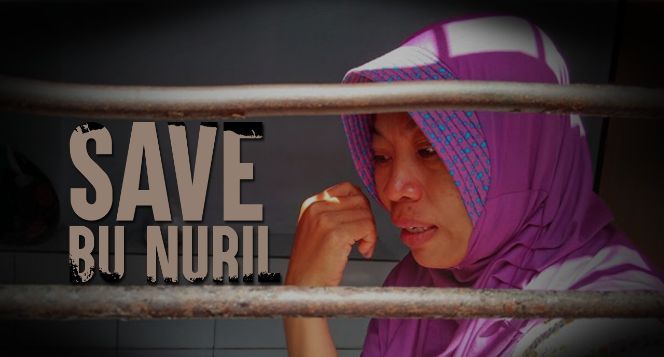The injustice suffered by Baiq Nuril — a teacher who was sentenced to six months in prison for recording her principal sexually harassing her — was finally remedied by President Joko Widodo himself after he used his powers to grant her amnesty last month. Now, some of Jokowi’s senior ministers say they will propose revisions to the controversial law that led to Baiq’s sentence, the Law on Information and Electronic Transactions (UU ITE).
Watch: Baiq Nuril in tears after receiving news that President Joko Widodo granted her amnesty
On Friday, Minister of Law and Human Rights Yasonna H Laoly confirmed that the administration was planning to submit a revision to UU ITE in light of Baiq’s case.
“So I, along with the Minister of Communication and Information will sit together to see how we can revise the ITE law. It will definitely (be revised),” Yasonna said Friday at the Presidential Palace in Bogor as quoted by Kompas.
Yasonna said he could not elaborate on what specific articles of the ITE law they want to revise, saying that it still needed further discussion. He also said that the revision would likely only be submitted to the House of Representatives at the start of their next session in October.
Baiq was charged with violating one of the most contentious statutes of the ITE law, one that criminalizes the electronic dissemination of any information that could be considered immoral or defamatory. Specifically, the principal whose sexual harassment she recorded reported her to the police for defaming him by uploading the recording to social media (Baiq maintains that the audio was uploaded by a colleague she had shared the recording with).
Read also: Silencing the critics: The 5 most outrageous and ridiculous cases of UU ITE violations
Although the district court found her not guilty, the Supreme Court overturned that decision, ruling that Baiq was guilty of “distributing and/or transmitting or making accessible electronic information and/or electronic documents that have contents that violate morality.”
When the Supreme Court finally published the official court document pertaining to her case in December, it became apparent that the court had ignored the sexual harassment aspect of her case, focusing instead on the principal’s honor.
“Because of the actions of the defendant, the career of the plaintiff, Haji Muslim, as a principal came to an end, his extended family was shamed and his honor was violated,” reads a passage in the much-criticized court decision.
For that, Baiq was sentenced to six months in jail as well as a fine of IDR500 million (US$33,500). The Supreme Court’s verdict was annulled by President Jokowi’s amnesty last month.
Baiq’s case is not the only one in recent memory that has led to calls from politicians for the ITE law to be revised. Musician cum politician Ahmad Dhani, who had been a vocal opponent of President Jokowi’s administration, underwent two separate trials earlier this year for violating the ITE law by disseminating hate speech online in the form of vulgar insults directed at those who politically opposed him. He was found guilty in both cases and received a 1.5-year sentence followed by a one-year sentence.
Dhani’s convictions led fellow conservative politicians from the opposition to also call for UU ITE to be repealed or changed (even though they were at least partially responsible for its existence in its current form) arguing that, as it did in Dhani’s case, it could impinge on freedom of thought and opinion. It’s a sentiment that rights activists arguing against UU ITE have long expressed.




